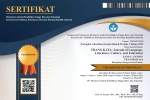The Relationship between Teachers’ Level of Use of Critical Thinking and their Attitudes
DOI:
https://doi.org/10.54923/jllce.v4i1.62Keywords:
Attitudes, Correlation, Critical thinking, Level, Teachers.Abstract
The integration of critical thinking within the classroom enhances the educational experience by providing essential support to teachers in executing their responsibilities and fostering an environment where students can acquire knowledge more efficiently. This practice influences both instructional methods employed by teachers and the learning processes of students. In the context of Morocco, the majority of existing research underscores the significance of critical thinking within higher education. However, limited attention has been given to the implementation of critical thinking within Moroccan high schools. A considerable number of high school graduates lack proficient critical thinking abilities. As a result, it is imperative to incorporate critical thinking into education to facilitate the development of students' problem-solving skills and sound decision-making capabilities. This research endeavor seeks to explore whether a statistically noteworthy correlation exists between teachers’ level of use of critical thinking and their attitudes.
Downloads
References
Al-Bataineh, A. T., & Nur-Awaleh, M. E. (2005). International education systems and contemporary education reforms. Lanham, MD: University Press of America.
Alhammouri, H., & Alwahr, M. M. (1998). Developing the ability to think critically and its relation to age and gender level The study branch. Studies (ESF), 25(1), pp. 112-126.
Astleitner, H. (2007). Teaching Critical Thinking Online. Journal of Instructional Psychology, 29(2), 53-77.
Bassett, P. F. (2005). Reengineering schools for the 21st century. Phi Delta Kappan, 87(1), 76-83.
Bransford, J. D., Brown, A. L. & Cocking, R. R. (2000). How people learn. Washington, D.C.: National Academy Press.
Chouari, A. (2016). Teaching critical thinking in Moroccan Higher Education: challenges and opportunities. Arab World English Journal, 7, 2.
Cohen, J. W. (1988). Statistical power analysis for the behavioral sciences (2nd edn). Hillsdale, NJ: Lawrence Erlbaum Associates.
De Bono, E. (2005). De Bono’s Thinking Course (Reprint). London: BBC Worldwide Ltd.
Elboubekri, A. (2013). Multilingual education in Morocco and the question of cultural identity: Toward implementing a critical thinking approach in high school English textbooks. Academic Journals, 8(20)
Evans, R. W. (2008). The promise of critical pedagogy. Journal of Social Studies Research, 32(2), 16–25.
Facione, P. (2006) Critical thinking: What it is and why it counts. California: California Academic Press.
Garrison, D. R. (1992). Critical thinking and self-directed learning in adult education: An analysis of responsibility and control issues. Adult Education Quarterly, 42, 136- 148.
Gelder, T. V. (2005) Teaching critical thinking: some lessons from cognitive science. College Teaching, 53(1), 41-48.
Graziano, A. M., & Raulin, M. L. (1997). Research Methods: A process of inquiry. Addison Wesley Education Publisher Inc.
Halpern, D. F. (2009). Foreword. In D. S. Dunn, J. S. Halonen, & R. A. Smith (Eds.), Teaching critical thinking in psychology: A handbook of best practices (pp. xv-xvi). Hoboken, NJ: Wiley Blackwell.
Hamdy, A. (2007). Survey of ICT and education in Africa: Morocco country report. Washington, DC.: World Bank.
Hatcher, D. L., & Spencer, L. A. (2005). Reasoning and Writing: From Critical Thinking to Composition. 3rd. ed. Boston: American Press.
Hooks, B. (2010). Teaching critical thinking. NY: Routledge.
Hove, G. (2011). Developing critical thinking. Educational technology, 10(3).
Howard, L.W., Tang, T.L.-P., and Austin, M.J. 2015. Teaching critical thinking skills: Ability, motivation, intervention, and the Pygmalion effect. Journal of Business Ethics, Vol. 128, pp. 133-147.
Inch, E. S. & Warnick, B. (2011. Critical Thinking and Communication: The Use of Reason in Argument. (6th ed). Boston. MA: Pearson.
Jebbour, M. (2016). Critical thinking in the Moroccan textbooks of English language: Ticket to English as a case study. Journal of Teaching and Education, CD-ROM. ISSN: 2165-6266: 06(01):75–90 (2016)
Kivunja, C. (2015). Teaching, Learning and Assessment: Steps towards Creative Practice. Melbourne: Oxford University Press. (In Press)
Marley, D. (2004). Language attitudes in Morocco following recent changes in language policy. Language Policy, 3, 25–46.
McGuinness, C. (2005). Teaching thinking: theory and practice. British Journal of Educational Psychology, Monograph series 2(3),107-126.
Mrah, I. (2017). Developing Higher Order Thinking Skills: Towards a Rethinking of EFL Coursebooks in Moroccan High Schools. JELTL (Journal of English Language Teaching and Linguistics), 2(3), 2017
Mulnix, J. W. (2012). Thinking critically about critical thinking. Educational Philosophy and Theory, 44(5), 464-479.
Norris, S. P. (1985). Synthesis of research on critical thinking. Educational Leadership, 42, pp.40-45.
Possin, K. (2008). A field guide to critical-thinking assessment. Teaching Philosophy, 31(3), 221-228.
Rezaei, S., Derakhshan, A., & Bagherkazemi, M. (2011). Critical thinking in language education. Journal of Language Teaching and Research, 2, 769-777.
Shirkhani, S. & Fahim M. (2011). Enhancing critical thinking in foreign language learners. Procedia - Social and Behavioral Sciences, 29, 111 – 115.
Stapleton, P. (2011). Survey of attitudes towards critical thinking among Hong Kong Secondary school teachers: Implications for policy change. Thinking Skills and Creativity, 6, 14–23
Trilling, B., & Fadel, C. (2009). 21st Century Skills: Learning for Life in Our Times. San Francisco, CA: Jossey-Bass.
Wade, C. (2009). Critical thinking: Needed now more than ever. In D. S. Dunn, J. S. Halonen, & R. A. Smith (Eds.), Teaching critical thinking in psychology: A handbook of best practices (pp. 11-21). Hoboken, NJ: Wiley-Blackwell.
Watson, G., & Glaser, E. (1980). Watson-Glaser Critical Thinking Appraisal. SanAntonio: Psychological Corporation.
Zouhir, A. (2013). Language situation and conflict in Morocco. Annual Conference on African Linguistics, (Ed.) Olanike Ola Orie and Karen W. Sanders, 271-277. Somerville, MA: Cascadilla Proceedings Project.
Downloads
Published
How to Cite
Issue
Section
License
Copyright (c) 2023 Youssouf Laabidi

This work is licensed under a Creative Commons Attribution-ShareAlike 4.0 International License.





